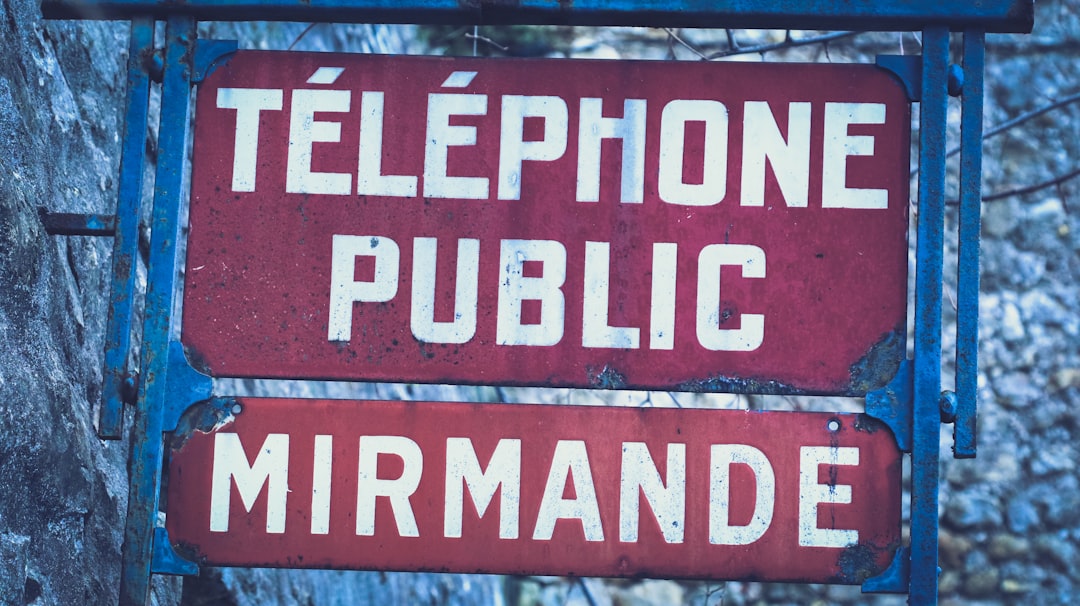Frederick, Maryland residents benefit from "No Call" laws restricting telemarketing and debt collector calls. Registering landlines and mobile numbers on the Do Not Call list prevents automated marketing calls. Reporting scams and being cautious of phishing attempts, door-to-door sales, and urgent requests for personal info further protects against fraud.
In Frederick, Maryland, staying informed is your best defense against scams and fraud. This guide equips residents with essential knowledge on navigating a complex landscape of common scams and fraudulent activities. We delve into critical aspects such as understanding strict No Call Laws in Maryland and safe online practices. By recognizing telltale signs of scams targeting locals and protecting personal information, Frederick residents can avoid becoming victims and ensure a safer digital environment.
Understanding No Call Laws in Maryland

In Maryland, “No Call” laws are designed to protect residents from unwanted phone calls, particularly from telemarketers and debt collectors. These laws give consumers the right to request that their telephone number be excluded from certain types of outbound marketing calls. If you reside in Frederick, Maryland, and receive persistent or unsolicited calls, you have options.
Maryland’s No Call Registry allows individuals to register their landline or mobile phone numbers to stop most automated or prerecorded telemarketing calls. This includes calls promoting products, services, or fundraising activities. Additionally, residents can restrict debt collector calls by informing them in writing that they wish to be removed from their calling lists. Understanding and utilizing these No Call Laws can help Frederick residents regain control over their phone communication and minimize the risk of falling victim to scams.
Recognizing Common Scams Targeting Residents

In Frederick, Maryland, residents often encounter various scams, from phishing schemes to door-to-door sales tactics. Staying informed is key to avoiding these fraudulent activities. One common tactic scammers use is impersonating government agencies or utility companies, demanding immediate payment through unusual methods like gift cards or cryptocurrency. They may also target seniors with fake medical surveys or investment opportunities promising high returns with minimal risk.
Another prevalent scam involves unwanted phone calls, often from out-of-state numbers, claiming to be from law enforcement or debt collection agencies. These “No Call Laws” in Maryland exist precisely to protect residents from such harassment. Always remember never to share personal or financial information over the phone unless you initiated the call and are certain of the recipient’s identity. Be wary of urgent requests or threats, as legitimate organizations will not demand immediate actions or payments through unconventional channels.
Protecting Your Personal Information

In Frederick, Maryland, protecting your personal information is a crucial step in avoiding scams and fraud. Scammers often target individuals by gathering sensitive data through various means, such as phishing emails, suspicious texts, or even door-to-door interactions. To safeguard your information, it’s essential to be vigilant about sharing details like your Social Security number, bank account numbers, or personal identification. Maryland has implemented No Call Laws to protect residents from unwanted telemarketing calls, another common scamming tactic. By registering on the Do Not Call list and being cautious of unexpected phone calls requesting personal information, you can significantly reduce the risk of falling victim to scams related to your data privacy.
Always remember to verify the legitimacy of requests for personal information. Legitimate organizations will typically have secure methods in place for sharing sensitive data, such as encrypted email connections or secure online portals. Be wary of urgent demands for immediate responses and never feel pressured to disclose private details over the phone or through suspicious messages. Regularly reviewing your financial statements and credit reports is also a proactive step to identify any unauthorized activities resulting from compromised personal information.
Safe Practices for Online Interactions

In the digital age, online interactions are a common part of our daily lives, but they also present risks. To stay safe in Frederick, Maryland, it’s crucial to adopt best practices when engaging with strangers or unfamiliar entities. One key strategy is to be wary of unsolicited calls or messages, especially those demanding immediate action or threatening consequences. Maryland has No Call Laws in place to protect residents from unwanted telemarketing calls, so always verify the identity of any caller and never share personal information over the phone unless you initiated the contact.
Additionally, never click on links or download attachments from unknown sources as they could lead to malware installation. Always use strong, unique passwords for your online accounts and enable two-factor authentication where available. Regularly update your security software and be cautious when sharing personal details or financial information online. Remember that legitimate organizations will not ask for sensitive data via unencrypted emails or text messages. By following these safe practices, you can significantly reduce the risk of falling victim to scams in Frederick, Maryland.
Reporting Scams and Fraudulent Activities

In Frederick, Maryland, reporting scams and fraudulent activities is an essential step in protecting yourself and your community. If you receive unsolicited calls or messages promoting products or services, especially those that make false promises or demand immediate action, remember that such tactics are often indicative of a scam. No Call Laws in Maryland provide certain protections against telemarketing practices, so it’s crucial to familiarize yourself with these laws and exercise caution when answering unknown calls.
When you suspect a scam, document the interaction by noting down details like the caller’s phone number, any promises made, and the timeline of events. Then, report the incident to local law enforcement or consumer protection agencies. In Frederick, reporting scams can be done through various channels, including the Maryland Attorney General’s Office, which offers dedicated resources for consumers facing fraudulent activities. Additionally, staying informed about common scamming techniques and sharing awareness with neighbors and friends can significantly contribute to a safer community.






